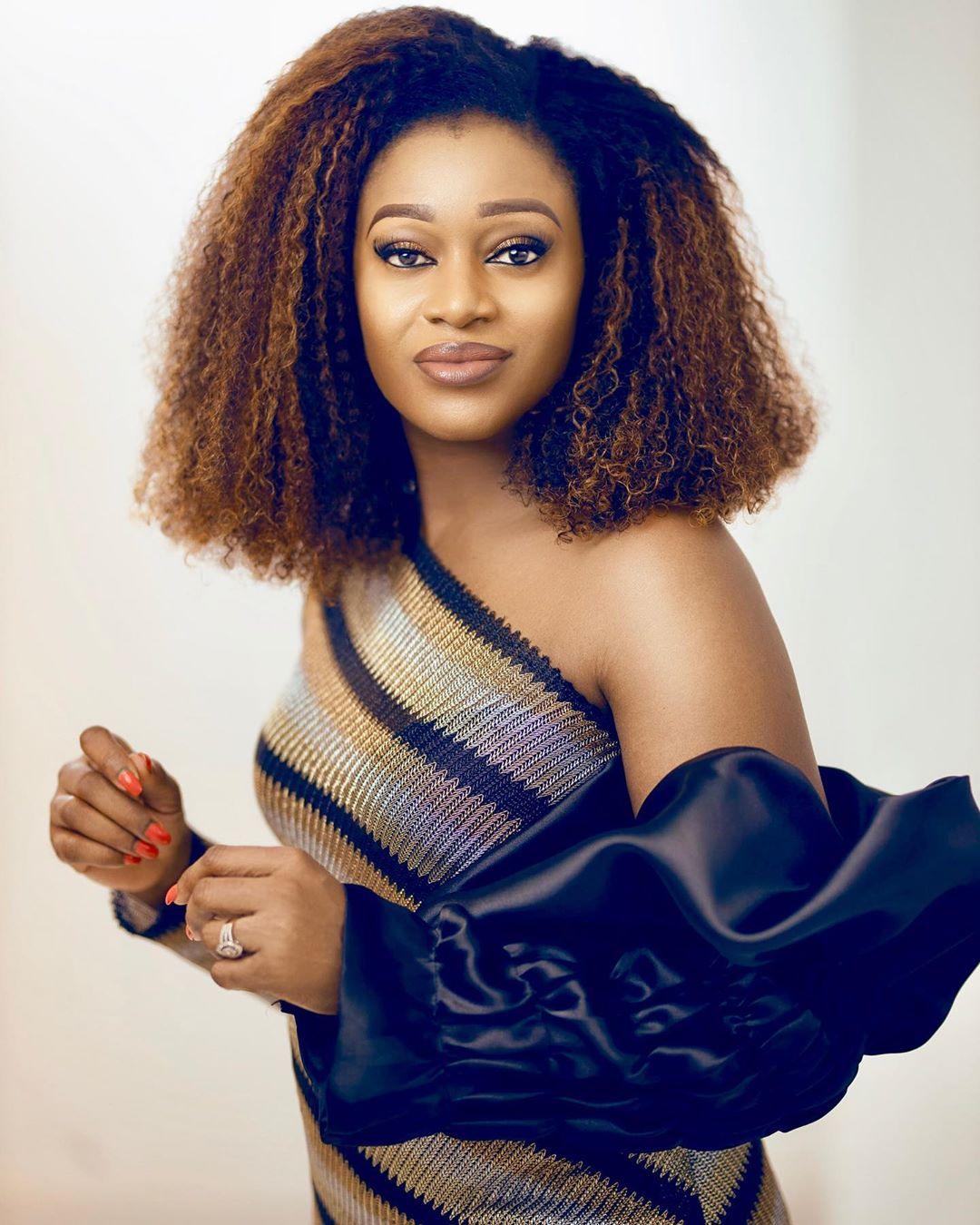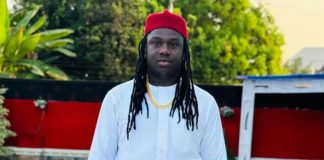🌿 Ruzu Non-Alcoholic Herbal Bitters
Ruzu Non-Alcoholic Herbal Bitters is a natural health supplement specially formulated to:
- ✅ Promote general wellness
- ✅ Detoxify the body
- ✅ Support the treatment of various ailments
Made from a powerful blend of 100% organic and medicinal herbs, Ruzu is completely alcohol-free, making it ideal for:
- 👪 All age groups
- 🌱 Health-conscious individuals
- 🌿 Anyone seeking non-alcoholic herbal remedies
Whether you're looking to boost your vitality, cleanse your system, or support healing the natural way, Ruzu Bitters offers a trusted herbal solution.
Lagos-based fashion designer, fashion entrepreneur, and fashion instructor Oluwakemi Ajayi is the creative director and co-founder of the women’s apparel line Wearlala. Among other things, SEYI TAIWO-OGUNTUASE discusses her path to fashion, what inspired her to pursue a career as a fashion educator, and what sustained her throughout this conversation. Quotes:
How did you go into fashion?
For me, fashion design is an outlet for my creative side. I have always been passionate about fashion and have had a deep interest in apparel and textiles since I was a small child.
It enables me to express and realize my artistic abilities and creativity by producing aesthetically pleasing designs.
Being an entrepreneur has also been a dream of mine since it would allow me to establish a profitable brand.
During my time at university, I was also pushed to enroll in a fashion design/dressmaking course by my mother, who is an art enthusiast.
Usually, I attend the classes throughout the holidays. I became really passionate about dressmaking, drafting patterns, and apparel and textiles throughout time.
I chose to pursue fashion design as a career after I became proficient in the field since it gives me the opportunity to express my thoughts and realize my ideals.
Describe your brand in more detail.
My spouse is one of the brand’s co-founders, and he came up with the moniker Wearlala.
Following my nickname Kemolala, we came up with the name Lala since we wanted a moniker that would be appropriate for any stylish item, not just clothing.
WEARLALA, a combination of wear and lala, is what we came up with as a result.
Dedicated to creating distinctive designs for women and children, Wearlala Fashion is a custom clothing brand for women.
Innovation and the use of high-quality, eco-friendly textiles are the cornerstones of the company. Additionally, it arranges training sessions and workshops for people who are interested in and passionate about learning how to make dresses.
What motivated you to start a dressmaking business or pursue a career as a fashion instructor?
I’ve always been a natural teacher. When I was still working as a freelance dressmaker and fashion designer, I frequently used social media to advertise my work. I also produced a lot of fashion content and tutorials for other dressmakers who were struggling with pattern drafting and garment construction.
Since many people were finding great benefits from my online lectures over time, it became necessary to develop in-person courses and training.
It allowed me to connect with other aspiring dressmakers more closely and feel fulfilled by influencing others’ expertise.
In what way did you enter the field?
Although my firm was formally registered in 2018, I have been creating clothing as a freelance dressmaker and designer since 2010.
A female-owned custom clothing company, Wearlala is driven by a strong creative spirit and aims to strike a balance between Westernization and African culture.
We made significant progress in the industry thanks to social media’s influence.
To inspire budding designers, in addition to designing and producing personalized apparel for our many clients, I also provide a ton of fashion-related content on Facebook, Instagram, and YouTube, such as sewing guides and do-it-yourself projects.
How much effort do you put into keeping up of current fashion trends and incorporating them into your designs?
I try to stay up to date by keeping up with the latest trends and drawing inspiration from fashion magazines, social media, and fashion databases such as Business of Fashion, Vogue Business, and WG:SN. Trend forecasting services help you stay ahead of the curve in fashion, and other subscription-based businesses provide future insights and innovations in fashion-related topics and other sectors.
In order to give students thorough instruction and growth, how did you plan and organize your dressmaking classes?
No matter your level of learning aptitude, the classes are made to be simple to interpret.
A relatively low teacher-to-student ratio allows prospective students to study both the theoretical and practical aspects of dressmaking through our planned learning curriculum. Through recorded videos on several internet platforms and channels, we also provide online sewing classes for individuals who are unable to attend in-person classes.
In what ways did you integrate industry developments and trends into your curriculum to make sure students are ready for the ever shifting fashion scene?
The foundation of every new fashion trend is preexisting information with a few minor adjustments.
One of the most important technical skills we teach our students is how to replicate styles from a basic design. To be able to conceptualize and realize a new design, you need to have an analytical mind.
Read Also: First Lady Donates N1bn and Medical Equipment to Strengthen TB Diagnosis in FCTA
Are your students able to present their designs in any way?
For the purpose of encouraging our students to present their designs, we host fashion shows.
They can advertise to prospective clients in this way and draw inspiration from other designers. It offers them more self-assurance to become great dressmakers.
Do you see the future of your brand changing?
We want to take the brand outside of Nigeria and concentrate more on making custom clothing, which is still a project in the works but has not yet been launched.
It would be a combination of modern Western clothing with African attire.
In what ways do you integrate ethical and sustainable practices into your designs and manufacturing processes?
In the process of designing a garment and consulting with my clients, I take into account the fabric’s durability and adaptability.
One important way to promote sustainability and support slow fashion is by using sustainable materials when designing and producing things.
I spend a lot of time researching textile and fabric suppliers who adhere to industry standards for sustainability. In summary, because to the high quality of the materials we employ, we create clothing that can be handed down from one person to another.
What difficulties did you first encounter, and how did you resolve them?
One of the biggest obstacles my team and I had to overcome was finding consumers who were open to the concept of buying clothing made from sustainable materials.
Purchasing a slow fashion clothing may be costly, but it will ultimately save money because it helps to lessen pollution in the environment through dyeing, washing, and other processes.
By choosing high-quality, long-lasting textiles and consistently discussing with customers the value of sustainability, we raise consumer awareness.
Outside of Nigeria, promoting the brand presented another difficulty.
Through social media, word-of-mouth, and recommendations, we were going to seek clients from both inside and outside of Nigeria.
Could you describe any difficult projects you have worked on and the challenges you faced and how you overcame them?
Although I will name a few, I have personally faced many difficulties along this professional road. Accurately measuring clothing for customers overseas to guarantee a proper fit is one challenge.
To get around that issue and make sure the measurements are obtained correctly, I hold virtual meetings with potential clients using Zoom or WhatsApp.
Putting together fashion shows for our kids is yet another enormous undertaking, but we manage to succeed with perseverance and teamwork.
In the fashion industry, what is the most significant lesson you have learned?
Although the sector is very competitive, it offers a large market and a platform for everyone to showcase their talents.
To succeed in the fashion industry, one must possess a great deal of passion and creativity. Your individuality and inventiveness will set you apart and help you carve out a place for your brand.
Another crucial lesson is the value of networking and teamwork, which allows you to connect and collaborate with other fashion business owners.
Which fabric kind is your favorite to work with?
Due in large part to my upbringing in northern Nigeria, I have an unrivaled passion for Ankara prints.
Ankara fabric, which is mostly composed of cotton, may be utilized to create a wide variety of modern and African designs.
African print cloth is renowned for its adaptability and ability to be created into visually pleasing patterns.
What are your future goals and aspirations for the brand?
To attract a global audience by creating a fashion brand that is sustainable and healthful while retaining its distinctive style of incorporating African elements into modern designs.
















